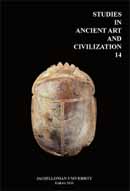Opera Pompei and the theology of Victory
Opera Pompei and the theology of Victory
Author(s): Kamil KopijSubject(s): Archaeology
Published by: KSIĘGARNIA AKADEMICKA Sp. z o.o.
Summary/Abstract: In December 62 BC, Pompey the Great debarked at the harbour of Brundisium, returning home after a few years spent fighting in the East. He was welcomed by masses (Vell. Pat. 2.40.3; Plut. Vit. Pomp. 43.2-3; Dio Cass. 37.20.6; App. Mith. 166.566-567; Gruen 1974, 83-85; Leach 1976, 101, 113-114; Seager 2002, 75). At the time he was the most powerful and certainly the most famous Roman politician. Shortly afterwards he celebrated his third triumph. He became the first Roman general to receive the right to triumphal procession for victories gained on three different continents – Europe, Africa and Asia. Yet such success had its own price. The majority of the ruling class envied him and was afraid of his power and so they decided to diminish his importance. Pompey was forced to look for new political alliances. That finally brought him into an agreement with Caesar and Crassus. Thanks to victorious wars his fortune, unlike his political position, had increased massively. On his return to Rome he was one of the richest men in the Republic and he would show that in a perfectly Roman way – by erecting a public building. The investment planned was as large as Pompey’s wealth. He resolved to build one of the largest complexes in Rome, which would consist of a temple of Venus Victrix, a theater, gardens and the senate’s curia.
Journal: Studies in Ancient Art and Civilization
- Issue Year: 2010
- Issue No: 14
- Page Range: 167-178
- Page Count: 12
- Language: English

